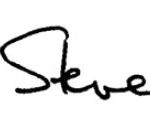It was an early morning skate that Guillaume Ouimet will remember for the rest of his life.
The nineteen-year-old captain of his AA hockey team regularly started his day with some early morning practice.
He practiced on his own at the outdoor rink in the small community of Mount Tremblant, Quebec. However, on this particular winter morning Guillame’s solitude was broken. A jeep pulled up, and as the driver approached, Guillaume quickly recognized two-time gold medal and three-time Stanley Cup winner Sidney Crosby.
At first glance, this story is about a unique celebrity spotting. After all, imagine being Guillaume! Spending an unscheduled and unscripted hour doing drills and visiting one-on-one with one of the best hockey players in history is a once in a lifetime opportunity! However, I believe this story is also filled with some profound takeaways for Christian leaders.Crosby initiated a conversation, and before long the Pittsburgh Penquin’s captain had laced up his skates. Over the next hour, with Guillaume’s help, Crosby worked through one drill after another. Afterwards, Crosby took time for a few pictures, toured the indoor rink next door and then drove off in his jeep.
Let me share some more background. Crosby was on a rare five-day break from his grueling NHL travel schedule. Yet instead of focusing exclusively on well-deserved rest, relaxation or even fun in the sun, Crosby was thinking about how he could improve and get to the next level. He packed his skates, he found a rink, he returned at an early hour, so he could have privacy and he invited a local player’s help.
When Guillaume asked him why he wanted to practice, Crosby shared that lately he’d been having trouble coming out of the corners with the puck. Since that’s a key part of his role, he knew he needed to invest some extra time in targeted practice.
What leadership lessons do you hear from this story? Here are two takeaways I’ve been reflecting on:
- Humility Is Required to Grow
One of the best hockey players in history didn’t coast on past achievements or get comfortable reading his own press. Instead, Crosby had enough humility to look for where he needed improvement. Pride was set aside. Mediocrity wasn’t an option. He seemed to be a keen student of himself as well as his craft, and he was willing to go uncomfortable places in order to be better for himself, his team and his fans.
I believe Crosby’s example encourages leaders to set aside pride and ask some tough questions. Questions like, “Have I settled into coasting or comfort?” “What’s my current “backhand?” In other words, “What’s a skill or area where I could be, or need, to be better?” “What impact could going to the next level have on God’s priorities for my life, my leadership, my team and my organization?”
If you can’t identify your current “backhand,” which is the most important focus for your development at this time, then invite some feedback. Ask for a performance review, engage a 360-assessment process or informally ask your team.
2. Responsibility and Training
Crosby took responsibility for his own intentional development, and he committed himself to the hard behind-the-scenes work of training to get better.
To apply this takeaway to Christian leadership, can you hear echoes of Paul admonishing Timothy? In 1Timothy 4:7 Paul challenges Timothy to “…train yourself to be godly.” In other words, it seems like God is saying through Paul, “Timothy, you have significant responsibility here. You need to be intentional and doing the hard work to be godly.” This means that you and I have a responsibility. We need to be intentional, and we need to be committed to doing the hard work required in our skills and character.
After all, the stakes are high. They are even higher than winning hockey’s Stanley Cup. Verse 8 gives the perspective that, “For physical training is of some value, but godliness has value for all things, holding promise for both the present life and the life to come.”
If you want some help in identifying your backhand and being intentional in your development, we have recently launched a new resource called a Leadership Tune-up. It’s designed to help busy leaders step back, find fresh perspective and get to the next level. It includes an online assessment followed by a 90-minute one-to-one personalized coaching session with me. You can learn more here: www.arrowleadership.org/tuneup
Cheering you on!
President, Arrow Leadership





